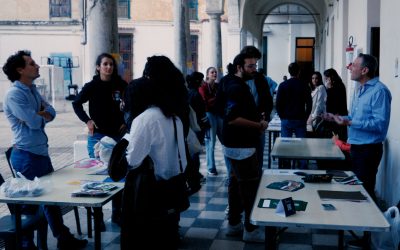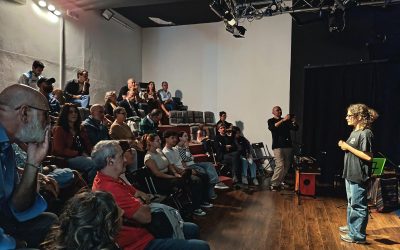 “WECE” is a project of the Erasmus+ Programme, under Key Action 3, Support for policy reform with a duration of 24 months – from November 2015 to October 2017. This consortium is formed by 5 partner organisations that include a high education institution, a technological company and three non-governmental organizations specialized in training for young people in risk of exclusion.
“WECE” is a project of the Erasmus+ Programme, under Key Action 3, Support for policy reform with a duration of 24 months – from November 2015 to October 2017. This consortium is formed by 5 partner organisations that include a high education institution, a technological company and three non-governmental organizations specialized in training for young people in risk of exclusion.
The project aims to increase political efficacy in local communities by providing training to decision makers on how to foster participation and dealing with the risks of open online discussion, and to young people – with special focus on young people at risk of exclusion – on how to participate in the democratic life of their cities.
On 23 November 2015 a Kick-off meeting for WECE project took place in Madrid, Spain that brought together all the partners. This meeting was the first occasion for partners to meet and to discuss their future responsibilities and roles within the project, the upcoming year of activities, challenges in involvement of the policy makers and citizens, interventions to undertake.
WeAllCount Europe tackles two main challenges for e-participation: Teaching young people to participate while trying to reduce the digital divide and scaling up the efficient handling of multiple inputs in e-participation tools.
The e-participation tool that will serve as a basis for the project was already successfully implemented by the technological partner in Spain, where eight state parliamentarians and over 2.500 citizens do already use it.
Now it will be implemented in five other cities of Germany, Spain, Austria, Italy and Lithuania. Non-governmental organizations will train young people as well as policy-makers on how to participate.
And finally, the academic partner will collect data of the online participation and carry out representative surveys to evaluate the effects of training on citizen’s political attitude.
The experience will be repeated twice in two years, so that the recommendations of the academic partner can be implemented and tested back.
20 city councillors, 50.000 citizens and 20.000 proposals are some of the numbers included among the goals of the project.
The next steps within the project are the selections of the city where the project interventions will take place, followed by the selection of at least 5 politicians per city and training of trainers for partners on how to conduct the local trainings with young people and politicians in April 2016.
For further information about the project, please contact caterina.impastato@cesie.org
![]() This project has been funded with support from the European Commission. This communication reflects the views only of the author, and the Commission cannot be held responsible for any use which may be made of the information contained therein
This project has been funded with support from the European Commission. This communication reflects the views only of the author, and the Commission cannot be held responsible for any use which may be made of the information contained therein









